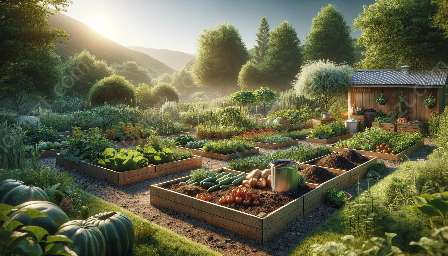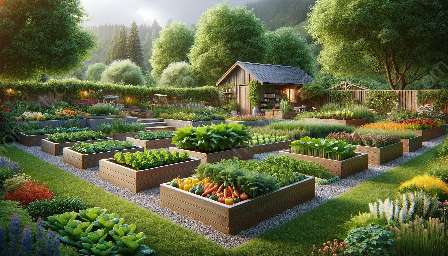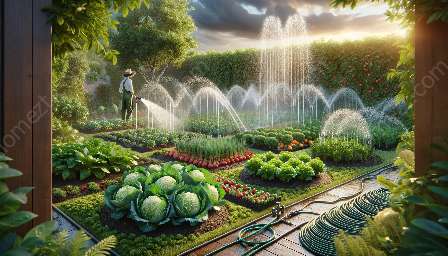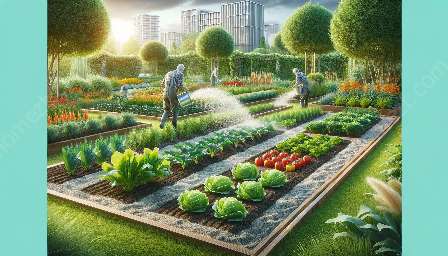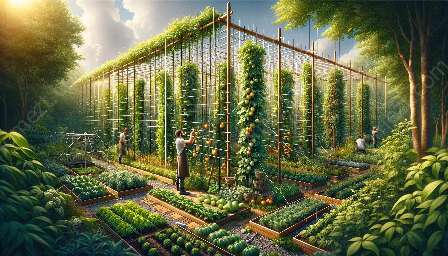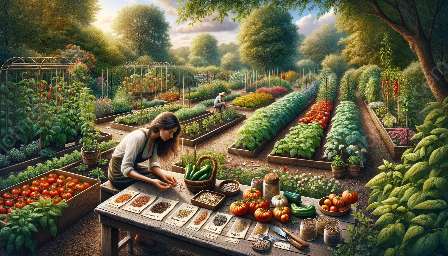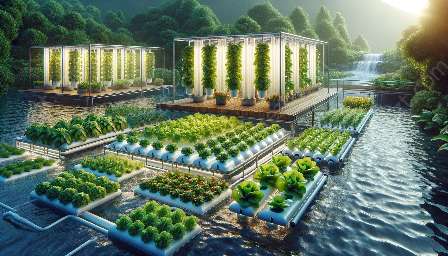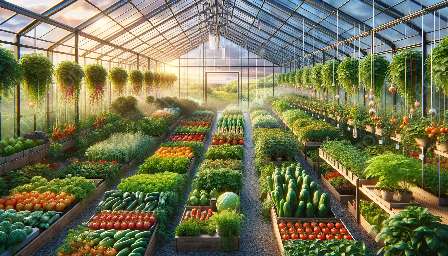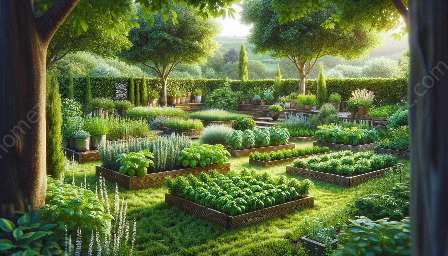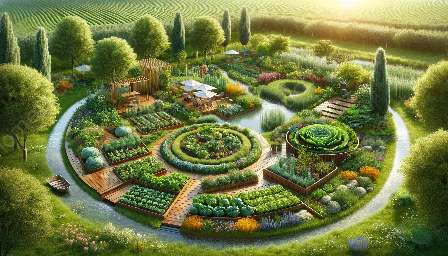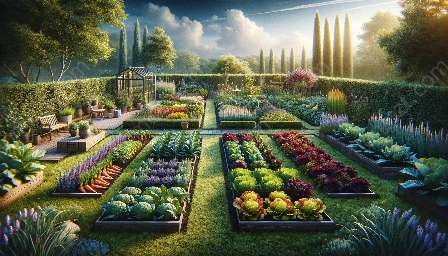Vegetable gardens require ongoing maintenance to keep them free from unwanted weeds and pests. Effective weeding and pest control methods are essential to ensure the health and productivity of your garden. This topic cluster will explore various strategies and techniques for managing weeds and pests in vegetable gardens, while also considering the impact on gardening and landscaping practices.
Weeding in Vegetable Gardens
One of the most common challenges in vegetable gardens is combating weed growth. Weeds compete with vegetables for water, nutrients, and sunlight, and can quickly overrun a garden if left unchecked. There are several effective strategies for controlling weeds in vegetable gardens.
Mulching
Applying mulch around vegetable plants can help suppress weed growth by blocking sunlight and restricting their access to nutrients. Organic mulches such as straw, wood chips, or shredded leaves can also improve soil structure and moisture retention while providing a barrier against weeds.
Hand Pulling
Regularly inspecting the garden for weeds and manually removing them by hand is a labor-intensive but effective method for maintaining a weed-free environment. It's important to pull weeds by the root to prevent regrowth and spread.
Weed Control Fabric
Using weed control fabric or landscaping fabric can provide long-term weed suppression by preventing weed seeds from germinating and establishing in the soil. This method is particularly useful for creating weed-free pathways between garden beds.
Natural Pest Control
Keeping pests at bay is crucial for preserving the health of vegetable crops. While chemical pesticides are an option, natural methods are often preferred in vegetable gardens to minimize the impact on the environment and human health. Here are some natural pest control strategies:
Companion Planting
Strategically planting companion plants that repel pests or attract beneficial insects can help reduce pest populations in the garden. For example, marigolds are known to deter nematodes, while planting aromatic herbs like basil and mint can repel common garden pests.
Biological Control
Introducing natural predators and beneficial organisms, such as ladybugs, lacewings, or parasitic wasps, can help control pest populations by preying on their vulnerable stages, such as eggs, larvae, or adults. Creating a habitat for these beneficial insects in the garden is essential for maintaining a healthy balance of predator and prey.
Organic Sprays and Solutions
Homemade organic sprays made from ingredients like garlic, neem oil, or soapy water can effectively deter and control pests without harming beneficial insects or contaminating edible crops. Regular application and early intervention are key to successful pest management.
Integration with Gardening and Landscaping
The principles of weeding and pest control in vegetable gardens can also influence broader gardening and landscaping practices. Effective control of weeds and pests contributes to the overall aesthetic appeal and sustainability of landscapes.
Erosion Control
Minimizing weed growth in garden beds and between pathways helps prevent soil erosion by maintaining the structural integrity of the soil. Proper soil management techniques, including mulching and ground cover plantings, can contribute to erosion control while enhancing the visual appeal of the landscape.
Wildlife Habitat Enhancement
Natural pest control strategies, such as attracting beneficial insects and creating wildlife-friendly habitats, can promote biodiversity in the garden and surrounding landscape. Incorporating native plants and providing shelter and food sources for beneficial wildlife contribute to a healthy ecosystem.
Sustainable Practices
Implementing natural weeding and pest control methods aligns with sustainable gardening and landscaping practices. It reduces reliance on chemical inputs, minimizes environmental impact, and encourages a more holistic approach to managing garden ecosystems.
In conclusion, weeding and pest control in vegetable gardens encompasses a range of strategies and practices that extend beyond mere maintenance tasks. By integrating effective weeding and pest control methods with gardening and landscaping principles, you can create a thriving vegetable garden that is both productive and visually appealing, while supporting a sustainable and balanced ecosystem.


